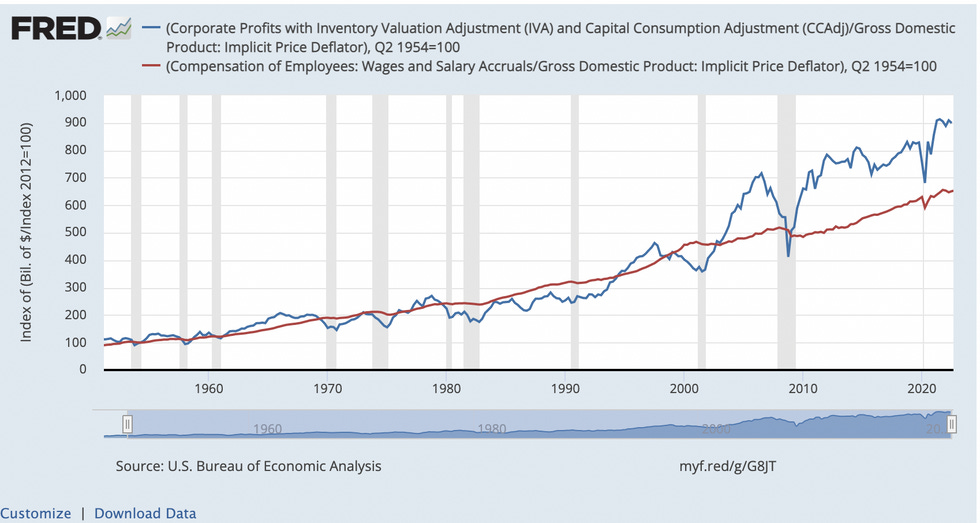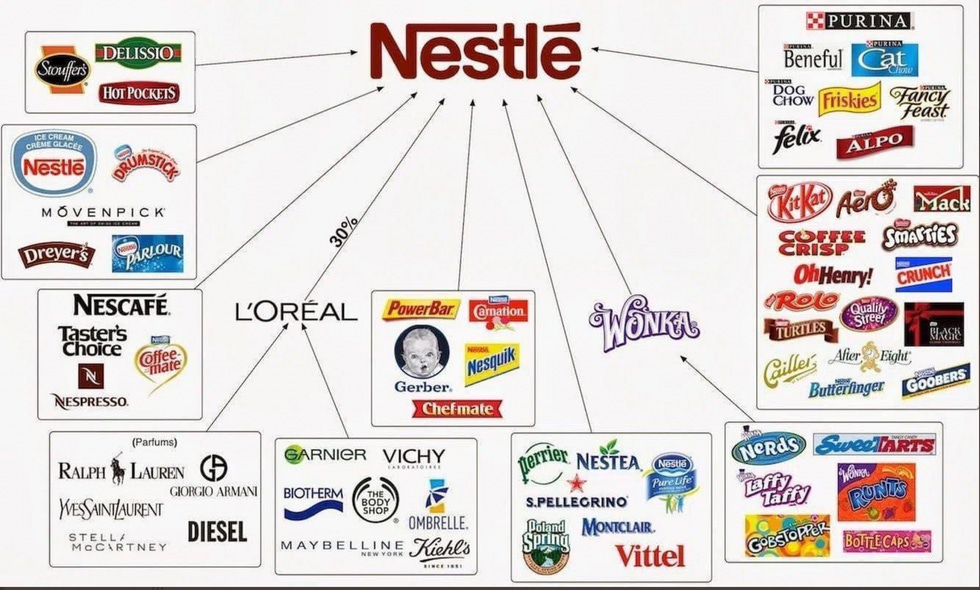Nestlé Just Gonna Keep Jacking Prices Up Forever And Ever And Ever (At Least Until 2024)
There's always a good reason to not buy Nestlé products.
There are a few brands and products where you're always going to want to check to make sure there isn't a boycott of before you buy anything from them. Like Driscoll's (no current boycott) or Wendy's (still going). I legitimately do not know if I'm still supposed to be boycotting Coca Cola over the whole death squads killing union workers in Colombia thing (there haven't been updates in years, but it was never officially canceled). Nike, I'm never going to buy no matter how "woke" their commercials get, because that doesn't excuse the sweatshops and forced labor. Palm Oil? Pass. Nestlé, however, is a monster all its own.
There has been an ongoing boycott of Nestlé since 1977 for their aggressive marketing of baby formula in developing nations in violation of the World Health Organization's International Code . On top of that, they are also the subject of a boycott organized by the Lakota People's Law Project for exploiting freshwater resources, like that time they kept extracting water from a west Michigan aquifer in order to profit off of it, even as the people of Flint couldn't drink their own water because "lead poisoning."
Well, now they're doing another crappy thing that is going to discourage people from buying Nestlé products even more, and not just because they don't want babies to get poisoned from water it is not safe for them to drink. Rather, because they plan to keep raising the prices of their products throughout 2023.
During the company's fourth-quarter earnings call with investors, CEO Mark Schneider and CFO François Roger explained that while they had high profit margins in 2022, this was only because they jacked the prices of their products up so high, and so if they want to keep making money, they will have to jack them up even higher.
"In 2022, pricing became the largest contributor to growth," CFO François Roger said, meaning that price increases led to more growth in revenues as sales growth declined.
Nestlé execs said that the company put up prices because of cost inflation, though they noted that higher prices and operating efficiencies weren't enough to fully offset inflation in most product categories. Poor weather, Russia's invasion of Ukraine, and rising wages have all contributed to higher input costs. In the US, the consumer price index – a measure of inflation – grew by 6.4% in the year to January , rising to 11.3% for food for at-home consumption, federal data shows. [...]
"I have no regrets about the pricing action that we have taken," Nestlé's Schneider told investors on Thursday."
We've been moving early with pricing, which I think is the right thing to do," Schneider added. "Sooner or later, gravity will catch up with some of our competitors. And hence, at that point, that situation will correct itself because they will also then have to take pricing action or live with permanent reductions in their profitability."
Nestlé's upcoming rises will be justified by data "otherwise retail partners and consumers will simply not accept price increases," Schneider said.
So basically what they're saying is that they didn't sell a lot of product last year (perhaps due to raising the prices?) and the profits they made were only because of the price increases. This has been true for a lot of corporations, many of which posted record profits last year after raising their prices due to "inflation." Had they just been keeping up with "inflation" or "rising wages" or other issues, profit margins would have stayed about the same. What's clear is that these companies raised their prices well beyond what they needed to, making bank for their executives and investors while screwing the American consumer. And for now, they're going to keep doing that, because it's working.
Hopefully this will not lead to competitors following in their footsteps, but instead realizing that by having lower prices than Nestlé, they can sell more goods and increase their profits that way.
This is part of the problem with giant conglomerates like Nestlé. In order for things to be structured in such a massive way, the people at the bottom of the pyramid have to be making basically nothing in order to support those at the top and investors. This is sometimes literal, given the corporation's history of sourcing cocoa from farms that use child slave labor.

Consumers need to not accept price increases. It's hard to do that, because we all need to eat, but if we refuse to buy Nestlé products, that will send a message both to them and to their competitors that this isn't going to fly. Nestlé owns a whole lot of products that don't necessarily have Nestlé slapped on the label, but for the most part it's not anything that can't be replaced by a non-Nestlé product.
(While this graph says the company owns 30 percent of L'Oreal, it's actually only 20 percent now, so I'd say it's your call if you want to include that. I know a lot of people are very devoted to Kiehl's for reasons of skin sensitivity, which is fair. I do, however, recommend Embryolisse Creme Lait Concetré moisturizer and primer as a substitution for anyone looking for one — it's extremely bland, one of the best daily moisturizers on the market, and about half the price).

It's scary to think that corporations are just going to keep raising prices until they hit the point where we simply can't afford them anymore. I don't think anyone is excited to spend $30 on a box of Nerds. By buying from smaller (and ideally less evil) companies and brands that are not raising their prices, we can at least do something to discourage this.
Do your Amazon shopping through this link, because reasons .
Wonkette is independent and fully funded by readers like you. Click below to tip us!




Thank you! I will check them out.
If you are in the NYC K-town I can guide you. Anything you find there is likely to be better than anything else, they have really dominated the world market.